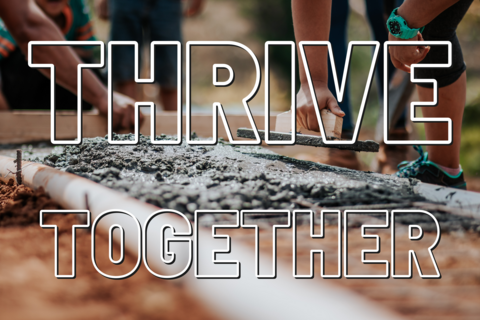
We know that most of our small businesses are facing unprecedented financial and operational hardships as the COVID-19 pandemic continues to dampen economic activity countrywide. As Canada’s health units try to stave off second wave outbreaks, government leaders have to thread the needle between keeping economies afloat and protecting the public from a deadly virus. Protective measures that limit crowding in production and customer service spaces, and mandates that encourage people to stay home, all can have a negative impact on productivity and revenue. This means that whether you own a business in Vancouver or Corner Brook, it’s very likely you’re taking a big hit, and all the while racking up debt in an effort to keep your doors open.
Many small businesses, especially in smaller, rural, and Northern communities, provide essential services and employment to their regions. They can also be crucial social or cultural centres that will leave irreparable scars to the economic landscape if they can’t make it through the pandemic.
This is why the L3 Community is supporting the development of a recovery option that capitalizes on that community value. It’s a solution many Canadians, let alone business owners, have never heard of. But that’s about to change.
L3 is a fast-growing network of organizations and professionals in a wide range of fields: business advising, economic development, impact investing, social finance, banking and lending, insurance, co-operative and social enterprise development, law, accounting and bookkeeping. They approach the business succession, retention and recovery issue from many perspectives and areas of expertise, but they all have one thing in common: they are passionate about changing the world of small business for the better. And one of those changes is to make social acquisitions a recognized and viable business succession option for Canadian business owners, social and co-operative entrepreneurs, and communities.
A social acquisition is a process by which a business is sold and transitioned into a social purpose form. Whether the business is a corporation, a sole proprietorship, or a partnership, it has the potential to be transitioned into a new form and model that capitalizes on the social and environmental benefits it generates through its operations.
What this looks like in practice varies widely between cases. Some of the most common cases in Canada are when a business is sold to its employees and incorporated as a worker co-operative. A worker co-operative can either be for-profit or non-profit enterprise, but its structure as a co-op makes it community-owned, and empowers its workers to make decisions that support that community. Co-operatives also belong to a long, international history, in which all co-operatives around the world are asked to abide by seven core principles. Following those principles creates a value-first enterprise, and what most people would call a “social” enterprise.
Co-ops aren’t the only social enterprise model. Some social enterprises are owned by non-profits as a revenue-generating arm that also underpins the non-profit's social purpose. Think a non-profit that advocates for the employment of people with blindness that purchases a business that is re-structured so that it focuses its recruitment people with blindness. Or maybe a charitable foodbank that purchases a restaurant and allocates all of the restaurant’s proceeds as donations back to the foodbank, and trains and employs at-risk youth as workers. Even municipalities can enact a social acquisition. In cases where an essential community asset is privately-owned and is at-risk of closure, a municipality can purchase that asset and run it as a public enterprise run by a board of community volunteers. This might be a small airport or marina that are essential to the local tourism sector.
This succession and recovery option is rarely undertaken, but in these changing times, it only takes a few early adopters to pave the way for an entirely new economy, in which business and community interests are married and a whole new generation of enterprising people and organizations commit to a building back better by leveraging the legacies of yesterday’s entrepreneurs.
About Legacy Leadership Lab (L3)
L3 is an 18-month initiative by the Waterloo Institute for Social Innovation and Resilience, funded by the Government of Canada’s Investment Readiness program. We are leading online workshops and events to help build expert-driven solutions for Canada’s transitioning small business community. The L3 Community is developing and activating market interventions and prototypes that allow conventional and social finance players, business service providers, and community leaders to facilitate social acquisitions of existing businesses in their own towns and contexts.
About Waterloo Institute for Social Innovation and Resilience (WISIR)
WISIR is a research institute at the University of Waterloo’s School of Environment, Enterprise and Development committed to generating trans- and inter-disciplinary knowledge about social innovations and the social innovation process (the dynamics of learning, adaptation and resilience). Our approach is to pursue collaborative research and projects that bridge University of Waterloo departments, involve researchers from around the world, and engage those beyond academia. We seek to mobilize this knowledge through a range of new curriculum offerings and training opportunities - both within and outside of a university setting.